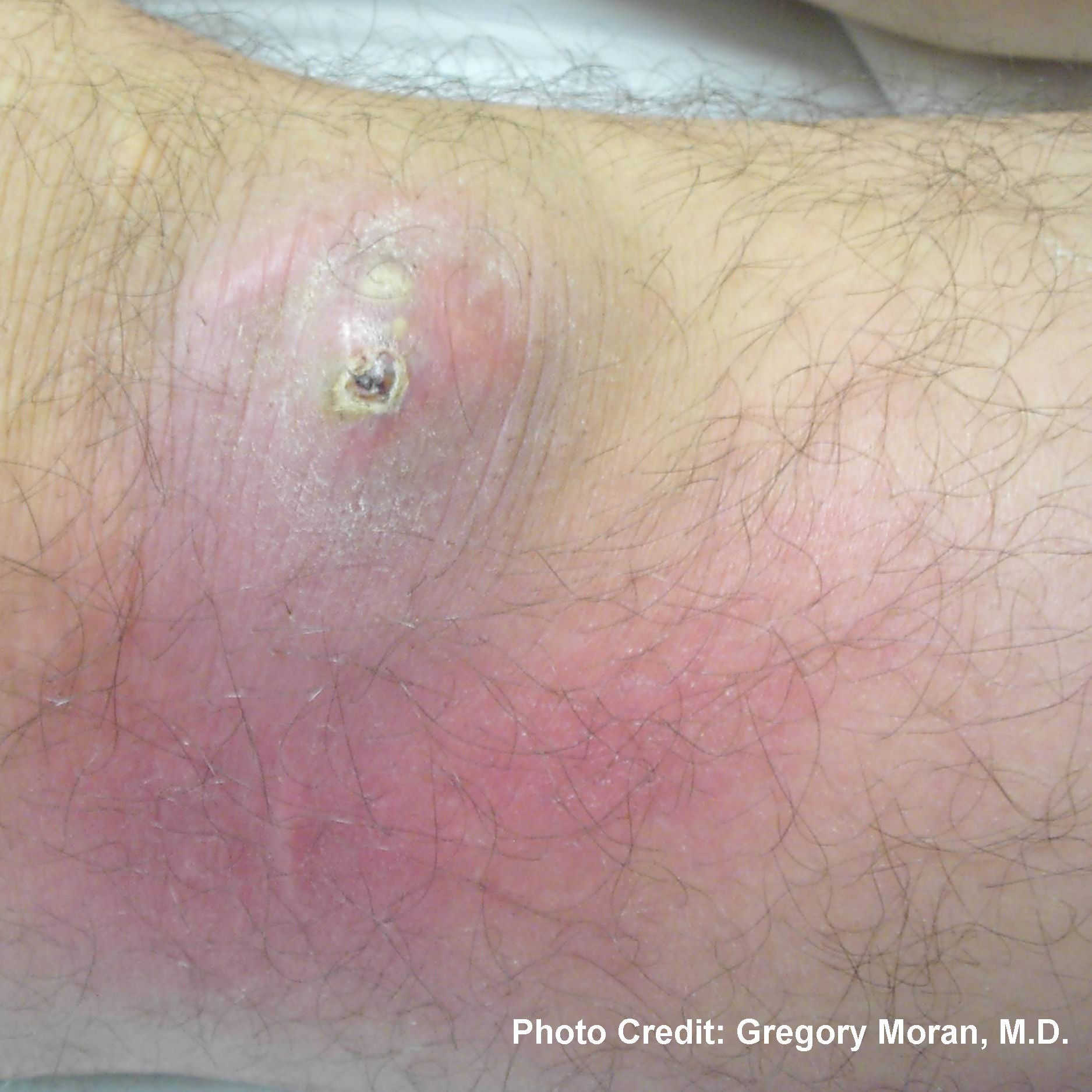Methicillin-Resistant Staphylococcus Aureus (MRSA)
Methicillin-resistant Staphylococcus aureus (MRSA) is a bacteria that is resistant to many antibiotics. Staph and MRSA can cause a variety of problems ranging from skin infections and sepsis to pneumonia to bloodstream infections.

Potential Hazard
Emergency department staff can be exposed to MRSA infections from environmental sources (e.g., homeless patients or IV drug abuse patients). Staff can become infected and then become carriers who can infect other staff members or patients. As MRSA becomes more resistant to antibiotics, such as methicillin and potentially vancomycin, it will become more difficult to treat.
Possible Solutions
- Hospitals in different geographical locations will need to establish their own local MRSA data and provide treatment information to clinicians.
- Practice Universal Precautions to help protect employees from infection.
- Universal Precautions is an approach to infection control to treat all human blood and certain human body fluids as if they were known to be infectious for HIV, HBV and other bloodborne pathogens.
- The CDC's recommendations for preventing transmission of MRSA in hospitals consist of Standard Precautions, which should be used for all patient care. In addition, the CDC recommends "contact precautions" (used for infections spread by skin to skin contact or contact with other surfaces such as herpes simplex virus) in special cases, when the facility deems the multi-drug-resistant microorganism to be of special clinical and epidemiological significance.
Knowledge Check Choose the best answer for the question.
1-8. As MRSA becomes more resistant to _____, it will become more difficult to treat.
You forgot to answer the question!
